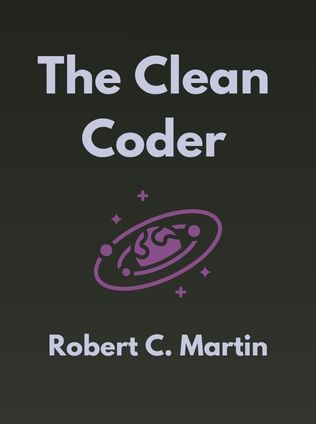
The Clean Coder
A Code of Conduct for Professional Programmers
By Robert C. Martin
Published 01/2011
About the Author
Robert C. Martin, also known as "Uncle Bob," is a highly respected figure in the software development community. With over 40 years of experience in the field, he has significantly contributed to the advancement of software engineering principles. Martin is a co-founder of the Agile Manifesto and has authored numerous influential books, including "Clean Code" and "Agile Software Development: Principles, Patterns, and Practices." His teachings emphasize the importance of professionalism, discipline, and ethics in programming, aiming to elevate the standards of the profession.
Main Idea
"The Clean Coder" is a comprehensive guide that delineates the qualities and practices of a true software professional. Martin argues that being a professional programmer is not just about writing code but also about adhering to a set of principles and disciplines that ensure quality, reliability, and continuous improvement. The book covers various aspects of professionalism, including commitment to personal development, discipline, honesty, communication, time management, and collaboration. By embracing these principles, developers can produce high-quality software and maintain integrity in their work.
Table of Contents
- Commit to Your Professional Development
- Practice Discipline
- Be Honest About Deadlines
- Communicate via Testing
- Manage Your Time Well
- Collaborate
Commit to Your Professional Development
The first quality of a professional is a commitment to continuous learning and improvement. According to Martin, the hours spent on your day job often involve tasks you're already familiar with, which contributes little to your professional growth. Therefore, dedicating personal time to enhance your skills is crucial. Martin suggests spending 20 hours per week on professional development, which includes improving existing skills and learning new ones.
activities to improve your skills include:
- Contributing to open-source projects
- Participating in coding exercises like kata, ping-pong, or randori
- Learning about the industry's history and new developments
"Aim to get the unconscious part of your mind to recognize a problem and your body to instinctively react to it, leaving the rest of your mind free to focus on strategy and problem-solving." - Robert C. Martin
Learn New Skills
Professionals must also expand their knowledge base beyond their current expertise. This involves understanding new technologies, methodologies, and even the domains of their customers or employers. Developing an error sense and maintaining humility are key aspects of this continuous learning process.
new skills to learn include:
- Backend development for front-end developers
- New programming languages and frameworks
- Industry-specific knowledge, such as finance or healthcare
Practice Discipline
Discipline is the backbone of professionalism in coding. Martin outlines several rules that form a disciplined approach to programming. These rules are personal and unique but provide a framework for creating reliable and maintainable code.
Avoid Doing Damage
One of the cardinal rules is to avoid causing harm through your code. This means rigorously testing your code before releasing it to others, learning from bugs to prevent future errors, and cleaning up bad code whenever encountered.
Key practices include:
Sign up for FREE and get access to 1,400+ books summaries.
You May Also Like
The Subtle Art of Not Giving a F*ck
A Counterintuitive Approach to Living a Good Life
By Mark MansonRich Dad Poor Dad
What the Rich Teach Their Kids About Money - That the Poor and Middle Class Do Not!
By Robert T. KiyosakiHow To Win Friends and Influence People
The All-Time Classic Manual Of People Skills
By Dale CarnegieQuiet: The Power of Introverts
The Power of Introverts in a World That Can't Stop Talking
By Susan Cain



















